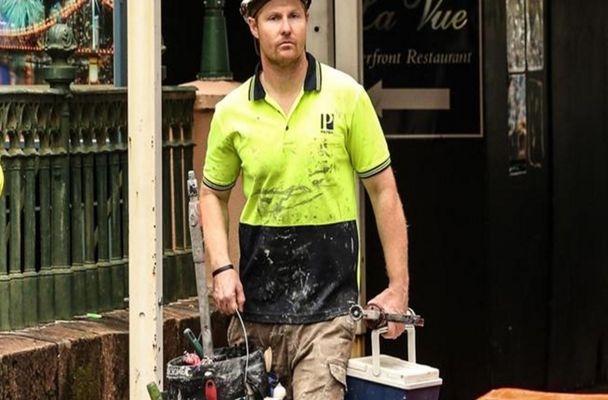By Spirit of Eureka (NSW) and Denis McNamara

It was hard to miss the collapse of construction company Probuild. But only the Financial Review came close to revealing the real cause. For most media outlets, it’s as if the company fell from the sky when its South African owner stopped the credit line.
Guardian Australia’s Peter Hannam got part of the story, when Jon Davies, chief executive officer of the Australian Constructors Association, blamed Covid lockdowns and rising costs.
The Financial Review excavated further to the truth, blaming state and federal governments acting as developers.
As journalist Michael Bleby stated, “Government efforts to load procurement risk in large contracts on to head contractors such as Probuild undermine the efforts those same governments are often making to protect payments to subcontractors because top-tier contractors pass all the risk straight down.
“State and federal governments are the country’s biggest buyers of construction services through projects such as infrastructure, hospitals and schools, but the system pushing development risk onto the head builder flowed through to tradies, industry lawyer Bronwyn Weir said.”
But who thought to speak to the union about what it sees as the issue, and how it’s affecting workers?
Spirit of Eureka’s Denis McNamara, a construction worker and member of the CFMEU’s NSW Committee of Management sheds light on the truth, that the bigger the corporation, the more they can get away with.
Here’s what he has to say:
It’s simple.
Probuild went into administration mainly because developers had not paid them for work done. The company is owed hundreds of millions of dollars.
The problem is the law allows the person taking the least risk but receiving the most profit – the developer – to dodge any responsibilities.
Covid lockdowns meant delays, but the developers basically said, “You have a contract and you haven’t met it. So what if you are nearly finished the buildings? We are not going to pay you.” And it’s all legal.
Securing entitlements
Probuild’s direct workers’ entitlements have been secured. Even the workers employed by sub-contractors will be paid most entitlements except the previous two weeks’ wages, accrued RDOs and holiday pay.
But the real battle will be for the sub-contractors themselves who are owed tens of millions. The CFMEU is working with administrators to guarantee payments.
Workers’ entitlements such as superannuation and redundancy are protected, as the union campaigned years ago to have them paid into monthly CBUS and ACIRT accounts.
Companies in our industry fold on a far to regular basis. Over the years the union has also become good at securing entitlements when subbies go broke and are able to convince builders to pay and ensure workers are engaged by whichever contractor completes the work.
Workers ask, “Why don’t annual leave and RDOs have the same protection?” Bosses use the money for cash flow. They’re using workers’ money for their own benefit. It’s another really big battle.
Mum and Dad outfits
Subcontractors pay the price for rock bottom construction agreements with developers.
The union does not have the same influence with developers including governments, making it harder to ensure the same outcome with Probuild’s collapse.
Many of the Probuild subbies are Mum and Dad outfits, which will go broke if nothing is done.
Maybe we should take this opportunity to remind people about the order of payments in these circumstances – first, the administrators make sure there is enough money for their fees, then pays banks and creditor, next suppliers and finally sub-contractors and their workers if any money is left over.
The people who actually did the work are paid last.
Maybe we should also remind people that governments often team up with other developers and then sell their shares to their private ‘partner’. Ongoing super-profits aren’t used to assist the people, because the company is privately owned.
Risk is public, profit is privatised. Think Transurban bleeding motorists on publicly built motorways carving through cities, more coastlines and now inland areas. It ought to be illegal.
Probuild is a huge concern, but no match for the developers. Already investors are lining up to see if they can purchase the company to profit from the bastardry of the developers.
Scratch the surface, and you’ll find non-government developers and all the biggest construction companies are foreign owned. They shift profits offshore.
That’s capitalism. It’s all legal. It’s working perfectly for giant developers and other giant corporations.
But it isn’t working that well for ordinary workers, small companies and everybody else.
Isn’t it time to do something more than mopping up the damage?




